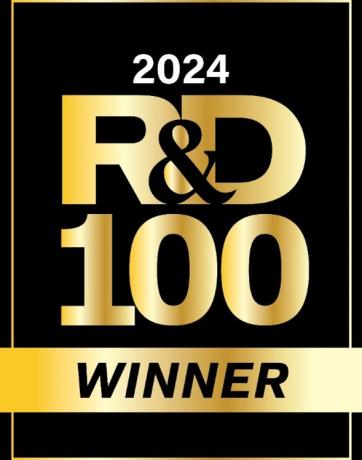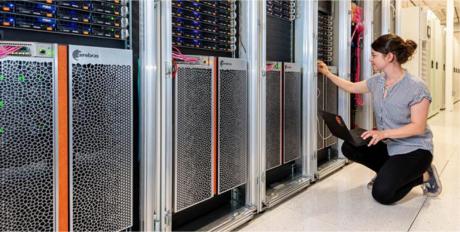Richard Hammack and Colton Kohnke, NETL physical scientists with significant experience conducting subsurface electromagnetic surveys and data collection, are scheduled to appear on a panel as presenters at the International Meeting for Applied Geoscience and Energy (IMAGE) Aug. 26-29 in Houston, Texas.
WASHINGTON, D.C. – The U.S. Department of Energy’s (DOE) Office of Fossil Energy and Carbon Management (FECM) today announced up to $127.5 million in federal funding to support the development of carbon dioxide (CO2) capture, removal, and conversion test centers for cement manufacturing facilities and power plants. Meeting the Biden-Harris Administration’s goal of a net-zero emissions economy by 2050 requires accelerating the responsible development and deployment of technology to capture CO2 emissions from industrial operations and power generation and to remove CO2 directly from the atmosphere. However, the energy and capital cost associated with state-of-the-art carbon capture systems is a barrier to wide deployment. This effort supports the establishment of test centers to cost-effectively research and evaluate carbon capture, removal, and conversion technologies in an industrial/utility environment.
Washington—The U.S. Department of Energy (DOE) announced today it has modified a funding opportunity to award $100 million available through President Biden’s Investing in America agenda to support states, local governments and public utilities in purchasing products derived from converted carbon emissions. This amendment will increase the maximum Federal share up to five million dollars per award. The goal is to speed up adoption of advanced carbon management technologies, creating a market for environmentally sustainable alternatives in fuels, chemicals and building products sourced from captured emissions from industrial and power generation facilities. This effort aligns with the Biden-Harris Administration’s historic climate and clean energy agenda.
WASHINGTON, D.C. — The U.S. Department of Energy’s (DOE) Office of Fossil Energy and Carbon Management (FECM) today announced it will make up to $54.4 million in additional funding available to advance diverse carbon management approaches that reduce carbon dioxide (CO2) pollution. The funding will support the development of technologies that capture CO2 from industrial and power generation sources or directly from the atmosphere and transport it either for permanent geologic storage or conversion into valuable products such as fuels and chemicals. The development of these technologies is crucial to advance the nation’s efforts to address climate change and achieve the Biden-Harris Administration’s goal of net-zero emissions economy-wide by 2050.
Researchers at NETL and the University of Pittsburgh received a prestigious R&D 100 Award for their collaborative effort that resulted in the development of revolutionary technology to protect and monitor pipelines, bridges, spent nuclear fuel storage canisters and other crucial components of the nation’s infrastructure.
Tulsa, Oklahoma-based ClearSign Technologies Corporation was awarded $1.65 million in Phase II Small Business Innovation Research (SBIR) funding for the development of its “Flexible Fuel Ultra-Low Nitrogen Oxide (NOx) Process Burner,” technology that can foster decarbonized hydrogen power use across the country in industrial settings.
WASHINGTON, D.C. — The U.S. Department of Energy’s (DOE’s) Office of Fossil Energy and Carbon Management (FECM) today announced the selection of nine university and industry-led projects to receive $44.5 million in federal funding to advance commercial-scale carbon capture, transport, and storage across the United States. These regional partnership projects will accelerate the understanding of specific geologic basins to enable the permanent storage of carbon dioxide emissions from industrial operations and power plants, as well as from legacy emissions in the atmosphere. The partnerships will provide technical, informational, and educational assistance to stakeholders involved in DOE and private sector-based carbon transport and storage projects located throughout the country, as well as to communities where these projects are located. These efforts support the Biden-Harris Administration's commitment to ensuring that all carbon management projects continue to be designed, built, and operated safely and responsibly, and in a way that reflects the best science and commercial practice and responds to the needs and inputs of local communities.
Several of the nation’s top engineers shared insights during a recent meeting with members of eXtremeMAT-H2, an NETL-led consortium of national laboratories, to accelerate the development of reliable, cost-effective alloys that can withstand long-term exposure to hydrogen-containing environments at elevated temperatures, such as environments found in advanced, hydrogen-fueled power plants and other industries.
NETL researchers recently took a significant step forward in harnessing the power of the world’s largest computer chip — the Wafer-Scale Engine (WSE) — by using an application programming interface designed in-house to connect commercial computational fluid dynamics (CFD) software through data-file sharing with the next-generation computing technology.
NETL and project partner Cerebras are advancing high-performance computing (HPC) and artificial intelligence (AI)-physics model coupling that can greatly reduce energy consumption and greenhouse gas emissions associated with energy research projects by as much as 30%.













